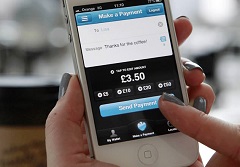The digital and m-payments technical body EMVco has called for a globally interoperable system for payment tokenisation, as it published a new technical framework for the industry.
The document is targeted at merchants, acquirers, card issuers and those interested in setting up mobile and digital payments. EMVco said the specifications would help the payments industry develop a “consistent, secure and globally interoperable environment to make digital payments when using a… smart device”.
The document discusses how tokens can be used either in a handset to make a payment at point or sale, or as part of a mobile wallet payment with online retailers. In the former, the device will generate a payment by using the token and other chip data elements and pass it onto the terminal using NFC. With e-commerce, the wallet will pass the payment token, along with other fields, through the wallet API to the merchant.
The body, which is jointly owned by American Express, Discover, JCB, MasterCard, UnionPay and Visa, said an interoperable solution would lead to industry efficiencies and greater security for making mobile and digital payments.
As well as sitting within a smart device to enable payments, EMVco envisaged tokens replacing traditional card account numbers. To do so, it said data message formats and authentication of payment had to be standardised.
Dave Meadon, current chair of the EMVCo executive committee, said: “It is vital that we have a consistent approach to identify and verify a payment token request, which is supported by industry agreed channel controls to manage where and when the payment token can be used. This level of consistency eliminates data vulnerabilities at key points in the transaction, which ultimately enhances security.”
EMVco said the new specification would be compatible with existing payment infrastructures and complementary to its existing chip requirements. It added that it wanted feedback from various companies to include new types of payment technology: “The specification framework will evolve with industry input collected to broaden its applicability and relevance to marketplace needs.”
Read More:



